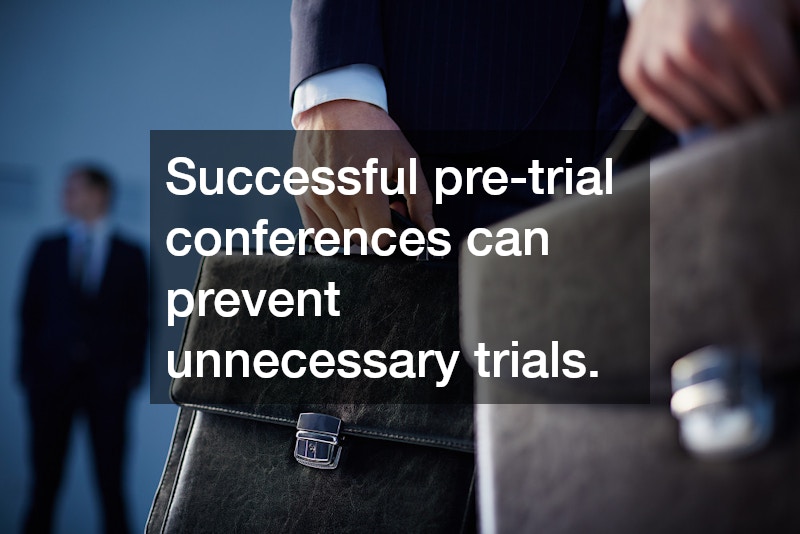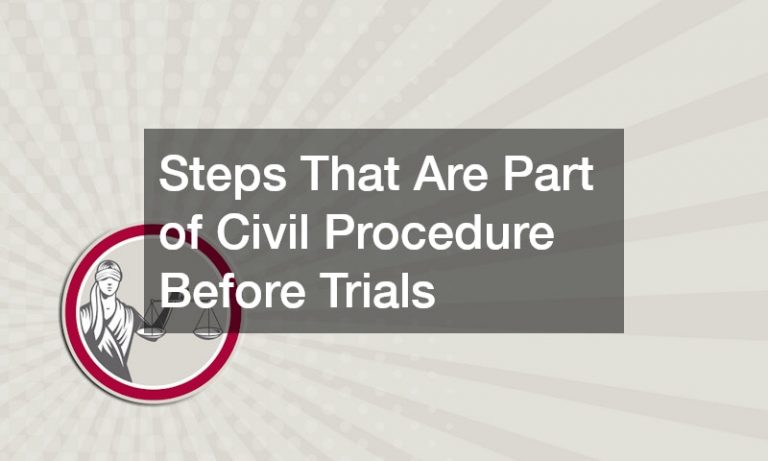In the landscape of law, civil procedures play a crucial role in the orderly conduct of disputes before they make their way to trial. The phrase ” civil procedure before trial” encapsulates a multitude of processes that ensure justice is served efficiently and fairly. In this article, we will delve into the significant steps involved in the civil procedure before trial, highlighting their importance in the legal system.
Pleading Stage
The initial step in the civil procedure before trial is known as the pleading stage. During this phase, the parties involved submit formal written statements detailing their claims and defenses. These statements, typically consisting of a complaint and an answer, lay the foundation for the litigation process.
The complaint is filed by the plaintiff and outlines the basis of the lawsuit, detailing the facts that give rise to the claim. Once the complaint is served to the defendant, they must respond with an answer, where they accept, deny, or assert defenses against the allegations. This exchange of documents helps define the issues of the case and allows courts to identify whether the complaint has sufficient grounds to proceed.
Discovery Process
The discovery process is a critical phase in the civil procedure before trial, where both parties gather pertinent information and evidence. This stage aims to eliminate surprises by allowing litigants to obtain, review, and exchange relevant documents and witness testimonies. Discovery can include written interrogatories, requests for documents, depositions, and admissions.
Interrogatories are written questions sent by one party to the other, requiring precise and truthful responses. Similarly, requests for documents mandate the sharing of pertinent documents, enabling transparency and a more comprehensive understanding of the case. Depositions, where parties and witnesses provide testimonies under oath, are recorded for potential use during the actual trial.
The role of discovery is not only limited to gathering evidence but also assessing the strengths and weaknesses of a case. It can lead to settlements or dismissals if one party finds their case untenable after reviewing gathered evidence. Moreover, thorough discovery ensures both parties are on an equal footing when proceeding to the pre-trial stages.
Pre-Trial Motions
Pre-trial motions form another critical component of civil procedure before trial, providing opportunities to resolve or refine issues before they reach the courtroom. These motions can profoundly impact a case by addressing matters that might render a trial unnecessary or streamline its proceedings. Common pre-trial motions include motions to dismiss, for summary judgment, or to compel discovery.
A motion to dismiss requests the court to terminate the case based on legal deficiencies in the plaintiff’s complaint, such as lack of jurisdiction or failure to state a claim. Alternatively, a motion for summary judgment can be filed when one party believes there is no dispute over the critical facts and that judgment should be made based on the law. On the other hand, a motion to compel can address issues where one party has failed to comply with discovery requests adequately.
Pre-Trial Conferences
The pre-trial conference represents a collaborative meeting between the judge and legal representatives of both parties, aiming to simplify and expedite the upcoming trial. This conference examines the issues to be tried, discusses potential settlement prospects, and sets timelines for proceedings. It helps both parties and the court to clarify the trial’s agenda and to narrow down the critical issues.
During these conferences, judges may play an active role in facilitating negotiations aimed at settlement. The discussions typically involve breaking down complex issues, stipulating evidence, and establishing protocols that should be adhered to during the trial. This helps enhance efficiency, reducing the trial’s complexity, and paving the way for swift resolutions outside the often congested court dockets.
The collaborative nature of the pre-trial conference underscores its potential to minimize conflict and promote cooperation between parties. Successful pre-trial conferences can prevent unnecessary trials by resolving disputes amicably before they escalate. As such, these proceedings form an integral part of civil procedure before trial, ensuring the legal system operates smoothly and effectively.
By delving into these intricate steps that comprise the civil procedure before trial, parties can navigate the legal landscape better. With enhanced preparedness and understanding, justice becomes a more attainable end for those engaging in civil disputes. Therefore, these procedures serve as the cornerstone of effective dispute resolution in the civil justice system.
.







